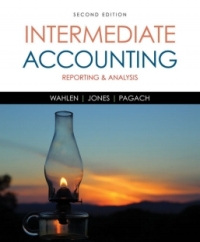


+10% 14:32 20210527111916D6...2-ACCT7066_2030-3 - Disimpan O ... Question 1 Listed below are costs found in various organizations: 1. Property taxes, factory. 2. Boxes used for packaging detergent produced by the company. 3. Salespersons commissions. 4. Supervisor's salary, factory, 5. Depreciation, executive autos. 6. Wages of workers assembling computers. 7. Insurance, finished goods warehouses. 8. Lubricants for production equipment. 9. Advertising costs. 10. Microchips used in producing calculators. 11. Shipping cost on merchandise sold. 12. Magazine subscription, factory lunchroom. 13. Thread in garment factory. 14. Billing cost. 15. Executive life insurance. Instructions: Classify each cost as either variable or fixed with respect to the number of units produced and sold; and then selling cost, an administrative cost, or manufacturing cost. If it is a manufacturing cost, indicate whether it would typically be treated as a direct cost or an indirect cost with respect to units of product. Question 2 Angie March owns a catering company that stages banquets and parties for both individuals and companies. The business is seasonal, with heavy demand during the summer months and year-end holidays and light demand at other times. Angie has gathered the following cost information from the past year: Month January February March April May June July August September October November December Total Labor Hours 4,000 3,300 3,400 4,500 4,800 6,000 8,300 8,000 6,900 5,000 3,600 7,000 64,800 Overhead Costs $62,000 59,000 60,000 64,000 67,000 71,000 80,000 77,000 72,000 68,000 62,000 73,000 $815,000 pg. 1 +10% 14:32 20210527111916D6...2-ACCT7066_2030-3 - Disimpan o Instructions: 1. Using the high-low method, compute the overhead cost per labor hour and the fixed overhead cost per month and express the fixed and variable components of admitting costs as a cost formula in the form Y = a +bX. 2. Angie has booked 4,200 labor hours for the coming month. How much overhead should she expect to incur? 3. If Angie books one more catering job for the month, requiring 350 labor hours, how much additional overhead should she expect to incur? Question 3 Bertand, CEO of Creative Industries, is concerned about the recent volatility in the company's operating income. He believes that since the number of units sold has been fairly stable over the past three years that operating income also should have been stable. Bertand asked Peter, Creative's inventory manager, to help his understand the issue. Peter reviewed the company's records and compiled the following changes to Finished Goods Inventory (in units) for the years 2019, 2020, and 2021. Beginning inventory Production Sales Ending inventory 2019 1,000 40,000 (39,000) 2,000 Year 2020 2,000 38,000 (39,500) 500 2021 500 40,000 (39,500) 1,000 Peter also gathered the 2019 income statements prepared using absorption costing and variable costing, which follow. $4,290,000 Income Statement-Absorption Costing Sales Cost of goods sold Units in beginning inventory Units sold from current year production Total cost of goods sold Gross margin Selling expense Operating Income Income Statement-Variable Costing Sales Variable production expenses Variable selling expenses Contribution margin Fixed manufacturing expenses Fixed selling expenses Operating income (90,000) (3,420,000) (3,510,000) 780,000 (645,000) $ 135,000 = $4,290,000 (2,028,000) (195,000) 2,067,000 (1,520,000) (450,000) $ 97,000 Pg. 2 Instructions: 1. Compute the unit product cost for 2019, 2020, and 2021 for variable and absorption costing! Assume costs do not change from one year to the next. +10% 14:32 20210527111916D6...2-ACCT7066_2030-3 - Disimpan O Question 3 Bertand, CEO of Creative Industries, is concerned about the recent volatility in the company's operating income. He believes that since the number of units sold has been fairly stable over the past three years that operating income also should have been stable. Bertand asked Peter, Creative's inventory manager, to help his understand the issue. Peter reviewed the company's records and compiled the following changes to Finished Goods Inventory (in units) for the years 2019, 2020, and 2021. Beginning inventory Production Sales Ending inventory 2019 1,000 40,000 (39,000) 2,000 Year 2020 2,000 38,000 (39,500) 500 2021 500 40,000 (39,500) 1,000 Peter also gathered the 2019 income statements prepared using absorption costing and variable costing, which follow. Income Statement-Absorption Costing Sales $4,290,000 Cost of goods sold Units in beginning inventory (90,000) Units sold from current year production (3,420,000) Total cost of goods sold (3,510,000) Gross margin 780,000 Selling expense (645,000) Operating Income $ 135,000 Income Statement-Variable Costing Sales $4,290,000 Variable production expenses (2,028,000) Variable selling expenses (195,000) Contribution margin 2,067,000 Fixed manufacturing expenses (1,520,000) Fixed selling expenses (450,000) Operating income $ 97,000 Pg. 2 = Instructions: 1. Compute the unit product cost for 2019, 2020, and 2021 for variable and absorption costing! Assume costs do not change from one year to the next. 2. Prepare variable and absorption costing income statements for 2020 and 2021









